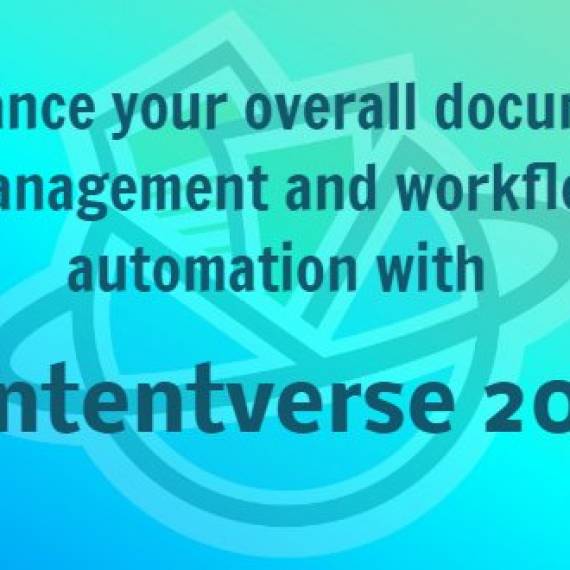With the emergence of hundreds of programs and software for companies over the last two decades, businesses are able to easily tackle nearly all paperwork digitally. Employees and business partners can create, import, look at, and edit a company’s data at any given moment. Because technology makes it so easy, these are all everyday practices.
This is why audit trails are absolutely vital and beneficial for businesses. It’s very important for company owners to have access to track who’s doing what to company documents.
The phrase “audit trails” may immediately make you think of IRS audits. But audit trails are a whole separate thing. They are lists that can be viewed in a document management application that show company owners when a specific document was created or imported, as well as who checked it out, viewed it, or edited it—and when. It reports when a document has been deleted, and when it is purged from the system. Any daily activity that happens to a document within your company, you’ll be able to see right in front of you with an audit trail application.
Basically, audit trails keep a record of every action that happens to company documents. Every addition, revision, and deletion of a document is tracked, monitored, and logged, even when the changes are executed by an administrator.
Having a strong audit trail program in place creates many positive impacts for a company. Here are just a few:
Security and Compliance.
With a good audit trail program, securing files is simple and compliant with most industry requirements. History logs and audit trails will track all activity, and will allow you to create a complete audit trail to ensure compliance at all levels. A good audit trail program will help you enhance your risk management.
Improved collaboration. Audit trails create a more organized workflow. When various employees are all working on the same file in specific stages, things can get confusing. But with workflow software that has built-in audit trail capabilities, the relevant files are tracked down the task chain, which is customized by the project leader.
Enhanced accountability. No more mysteries: any employee can be held accountable should something go missing, get changed, be deleted too early. This alone will solve who’s responsible for what, and will eliminate finger-pointing and suspicion within a company.
Better quality of work. Audit trails help employees to do a better job. None of them want to provide lackluster content, especially when it can be viewed easily under their name. The program makes employees complete assignments chronologically with workflow, which prevents even partially-completed assignments from traveling to the next step in an automation. Since everyone (or select individuals) can view which stage the project is in, any employee behind schedule will be forced to pick up the slack, improving efficiency.
Easy Company Data/Document Access
As we’ve discussed before with scanning and indexing, the simple fact that company documents will be accessible digitally is a wonderful thing in itself. Having this data online saves money, time, energy, and space. Workers can create, read, preserve, and distribute content as needed, and everything stays backed up and protected.
Both Mistakes and Credit Will be Recognized
Looking for the source of an issue with a document? Audit trails makes it easy to find that source, providing extensive information on the lifespan of every file, from its creation to every single edit beyond that—even if it’s been deleted. Company owners are able to view the details and time stamp of every edit of every file. The workflow becomes entirely transparent, employees (or you) will get the credit for that extra research you added to the document at the last minute.
These features all combine and compliment each other to overall improve your company’s workflow and general organization.
You may be wondering how specific audit trails are. With most programs, there is a wide variety of customizable options ranging from basic operations (create, delete, rename, save, and publish content, users, and folders) to more unique functions (modify logins, propagate permissions, check in, check out). All these options are available regardless of the file type, allowing company owners to use the program as they see fit.


You may also be wondering about what type of industries benefit the most from audit trail programs. These include the healthcare industry, legal, finance, insurance, and government. Why? Because within these serious industries, mistakes cannot afford to be overlooked. When dealing with people’s money and people’s lives, every move should be tracked. No wrong move should go unnoticed or not be dealt with. Bottom line: audit trails help to identify big mistakes, and to prevent future ones.
Audit trails are also hugely beneficial for internal affairs and legal investigations. Very recently, a major company experienced a devastating leak that ruined them when their files were exposed to the world. The leak came from within the business. With audit trails, the identity of this insider would be instantly known.
Having a detailed record of everyone involved in the process of a file—each time they touched it, what their involvement was, what information each employee entered into the file—will prove invaluable to your company. It can protect you against liability during legal battles, help monitor data for security breaches, ensure that the proper protocols are followed, and demonstrate compliance.
But to be honest, no matter what industry you work in, having an audit trail program is hugely impactful.
One example of a non-finance or government company that benefits from audit trails is this: a tech professional developed a B2B web app which sent materials to different retail shops. Reportedly, he said that the address changes and shipments often got lost, and clients always blamed the developers for these missed shipments. This got expensive, and also had a negative effect on the tech professional’s reputation. However, with an an audit trail, the developer was able to prove that the wrong address was the result of incorrect input on behalf of the client—not the developers.
As you can see, both giant industry players and small startups can see the amazing benefits of a proper audit trail program.


Your company’s value is its data. Whether you trade documents with customers, employees, business partners, or all of them, audit trails improve daily operations by allowing company owners to keep an eye on everything file-wise. No matter if you’re trying to detect fraud or simply praise a certain employee for adding something great to a file, the ability to trace who made decisions with a comprehensive audit trail will change how your workers operate, for the better.
After all, why would you not want to know what’s going on in your business?
Contentverse is a leader in the world of content management for businesses. To learn more about key features in Contentverse 8.3, give us a call or email us!














